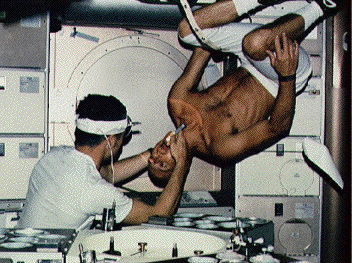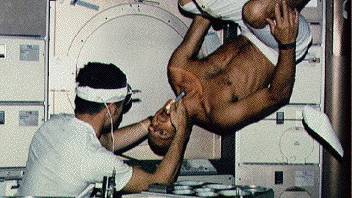Medicine doesn’t work properly in space
Source: io9.com
 Here’s one more unexpected challenge for space travel: drugs crucial for treating everything from a mild headache to a serious infection don’t work properly in the radically different environment away from Earth...and yes, radiation might be part of the problem.
Here’s one more unexpected challenge for space travel: drugs crucial for treating everything from a mild headache to a serious infection don’t work properly in the radically different environment away from Earth...and yes, radiation might be part of the problem.On Earth, medicine can generally remain effective for about two years, as long as it’s stored correctly. Proper storage generally involves keeping it away from direct sunlight and in a cool, dry space. But there are plenty of conditions that we take for granted on Earth that are nothing like those we find in space, where "radiation, excessive vibrations, microgravity, a carbon dioxide rich environment and variations in humidity and temperature" are all potential issues.
To figure out what effect all that might have on medicine, the researchers sent up four boxes of drugs containing 35 different medications up to the International Space Station. At the same time, they kept the same set of drugs in ideal conditions at the Johnson Space Center. The space drugs came back at different times - some just a couple weeks later, some more than two years later - but they all consistently showed reduced effectiveness at much faster rates than if they had remained on Earth.
This means that Earth-made medicines may not be useful on long-term space missions, such as a first crewed mission to Mars. In all likelihood, the drugs will need to be modified to take into account the vastly different conditions of space. Still, space drugs can have their advantages, as Dr. Colin Cable, the science information adviser at the Royal Pharmaceutical Society, explains:
"On Earth, medicines are tested to assess the effects of, for example, temperature, moisture, oxygen and light, and are packaged and stored to ensure they remain stable and effective over their shelf life. Repackaging of medicines into containers that do not give the medicines the protection required to moisture, oxygen and light can have a detrimental effect on their stability. One potential benefit of keeping medicines in a Space Station is that the medicines will be exposed to a carbon dioxide-rich environment, this may help minimise the degradation of those medicines prone to oxidation, such as adrenaline, vitamin C and vitamin A."
Article from: io9.com






















